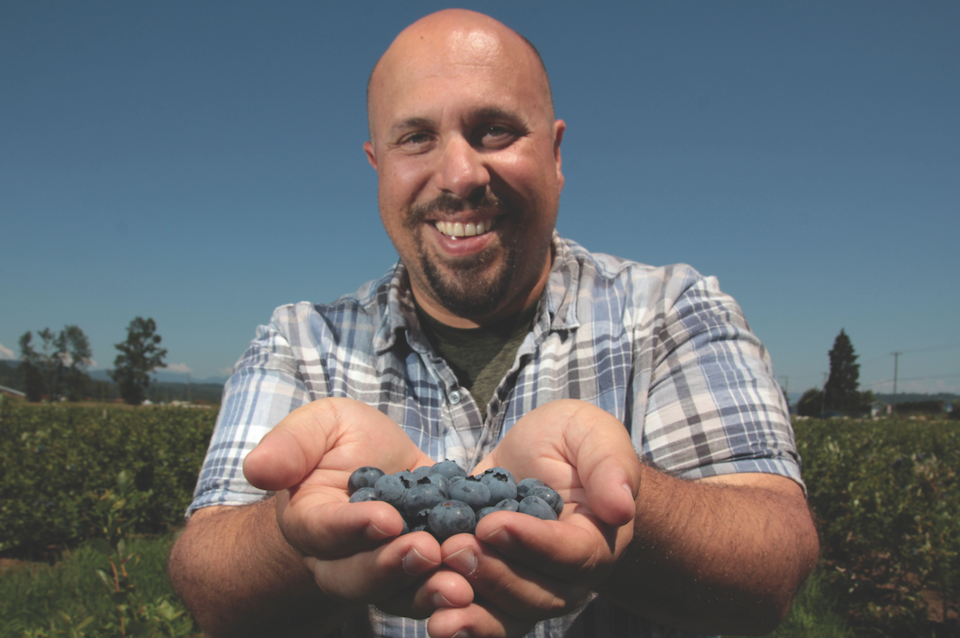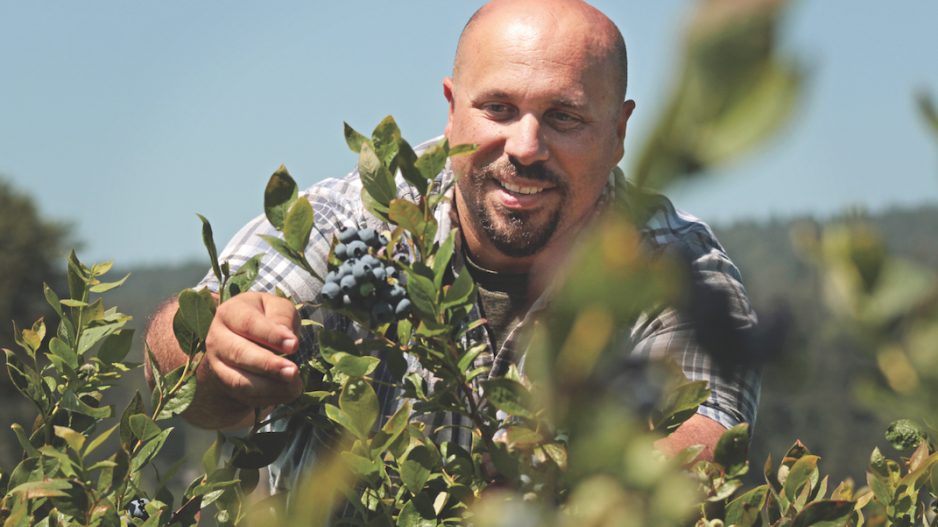Metro Vancouver farmers are rejoicing at what they say has thus far been one of the best years on record for their berry crops.
March, April and early May were hot and dry, which supported early pollination for strawberries, blueberries and raspberries.
Then, cooler and wetter weather, which was in line with historical averages, provided enough moisture and sufficient temperatures to nurture the berries.
“One year we started blueberries as late as July 15, but this year we are about a month ahead of that,” said Didar Berry Farm owner Anand Aujlay. “We started harvesting on June 15, which was at least a couple weeks ahead of what would be normal.”
He had hoped for higher prices for his crop because the Canadian dollar has fallen slightly against the U.S. greenback since last year. Canada also inked an export agreement with China that allows the world’s most populous nation to import B.C. blueberries for the first full season this year.
So far, however, Aujlay has been selling blueberries at his Delta farm for the same $2 per pound as he did last year, he said.
Organic blueberry farmer and Falconglen Farms owner Paul Falcon said berries at his Langley farm are ripening only slightly ahead of last year, which was also an early year for the blueberry harvest.
He expects his yield to be bigger, however, because 2015 was the first year that he had been able to harvest berries from his bushes, which were planted in 2011.
“It’s been a long time coming,” he said. “Harvesting blueberries is a three- to-four year project because you have to get the bushes in and then it takes a while for them to produce.”
Mature blueberry bushes produce more than their younger counterparts, so Falcon expects his yield to increase in each of the next three years. He will then stay at that maximum capacity for the foreseeable future.
Unlike Aujlay, who sells his berries either at a farm-side store, via u-pick or to canneries, Falcon sells all of his berries to grocery stores.

(Image: Falconglen Farms owner Paul Falcon started harvesting organic blueberries last year | Rob Kruyt)
Of course, the giddiness about good weather could quickly change.
Metro Vancouver last year endured 31.3 millimetres of rain that poured July 24 through 26.
Blueberry farmers told Business in Vancouver at the time that the rain came in such a torrential burst that their blueberries started to split. That’s because blueberry plants greedily gulp water from surrounding drenched soil and inject that moisture suddenly into the berries, causing the fruit to burst.
Blueberry production is increasing in B.C., which is one of the world’s largest highbush blueberry growing regions, with about 11,300 hectares of farmland devoted to growing more than 77 million kilograms of blueberries annually, according to the BC Blueberry Council. Low-bush blueberries tend to be used in food processing.
It is not just Metro Vancouver blueberry farmers who are enjoying a good year.
Strawberry farmers have just wound down operations and are as enthused as ever.
“This was the earliest strawberry season for June-bearing strawberries that I have ever seen and then we wrapped up June 25, so that’s a pretty long season,” said W&A Farms owner Bill Zylmans, who has been farming for more than 30 years.
“Go back to the end of April – you know how dry and hot it was. Everyone was excited. Farmers were racing around and planting crops and thinking, ‘Good Lord, last year it was a drought. We’re starting even earlier this year. It’s going to be another drought.’”
Then the cooler and wetter June was perfectly timed to slow down the strawberries’ growth and spread out production.
Zylmans now looks forward to harvesting his 80 acres of mixed vegetables. Potatoes and then pumpkins will come later.
“I do a lot of potatoes and, in Richmond, our soils are fertile,” he said. “I see the growth spurts, and I think I’m going to have a good harvest. I’m not losing sleep over not having enough moisture. We’ve had enough moisture now that it will carry them through.” •




